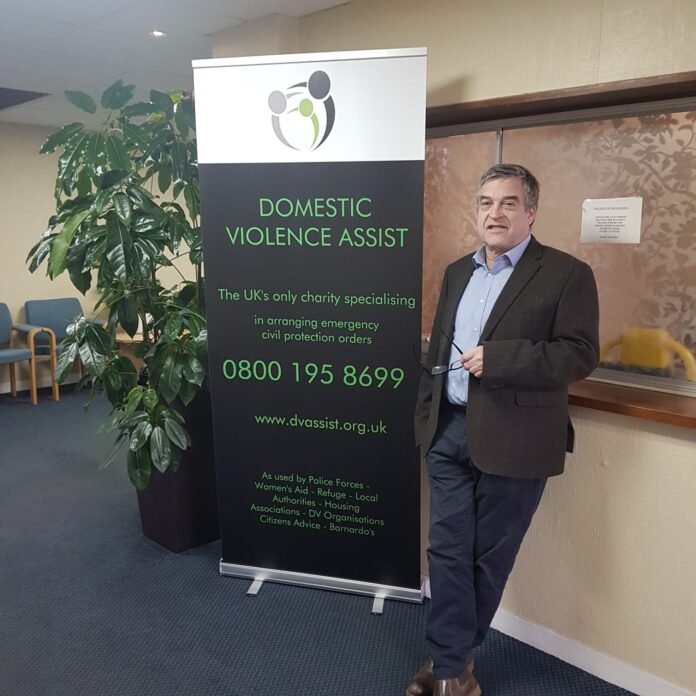A domestic violence charity has moved to bigger premises in south Manchester after expanding its team of advisers and case workers following a huge spike in referrals during the pandemic.
Domestic Violence Assist received 22,000 referrals during 2020, double the total for 2019.
And, since Christmas Day 2020 alone, the charity has dealt with 2,800 referrals and January is set to be its busiest-ever month.
Since September, the charity has recruited 20 volunteer advisers, who are mostly retired legal professionals, and six full-time case workers as demand for its services has grown.
DV Assist runs a 24/7 helpline for domestic violence victims and also receives referrals from police forces, social services, housing associations and organisations such as Barnardo’s and Citizens Advice, Women’s Aid and Refuge.
It operates nationwide and is the UK’s only registered charity specialising in arranging civil protection orders for victims of domestic abuse. These include non-molestation injunction orders, prohibited steps orders and occupation orders.
The charity’s expansion has been made possible by grants from Forever Manchester and the National Lottery Community Fund and by backing from its trustees.
Founder and chief executive Luis Labaton said: “We’ve seen a huge rise in referrals and calls since the pandemic started, and this has necessitated a major recruitment programme and a move to bigger premises to accommodate our growing team.
“We’re extremely grateful to the organisations and individuals who have supported us financially to make this expansion possible.
“It means we are well-equipped to handle our growing caseload, with more staff alongside a substantial investment in new software.”
Luis added: “There’s no doubt that the pandemic has resulted in a big rise in domestic violence and abuse.
“Many people living with controlling, abusive and unpredictable partners have effectively become trapped at home during the various lockdowns and since the introduction of the tier system.
“The Covid-19 crisis has increased domestic tension and led to more physical, sexual and financial and emotional abuse. With fewer visitors to the home, evidence of abuse may have gone unnoticed and therefore not brought to the attention of the various agencies.
“We have also seen cases where single parents have had their children taken by partners during the lockdowns and not returned due to the situation.
“More victims – men and women – have sought assistance from us. The intensity and pattern of abuse appears to have escalated, while at the same time access to other resources offering help has reduced due to the impact of the pandemic.
“Since Christmas Day alone, we have received 2,500 referrals, which is vastly more than we have seen in the past during this period.
“People who remained at home with their abuser so as not to spoil Christmas for the kids have since plucked up the courage to take action and report their suffering to agencies such as the police and social services, or call us direct for advice.”
Luis said domestic abuse victims are not bound by lockdown restrictions on leaving home to seek help and assistance.
Non-molestation orders, or injunction orders, prevent a partner, former partner or associated person from being violent or threatening violence towards a person or any children, and prevents intimidation, harassment and pestering.
An occupation order defines who can live in the family home. It can also prevent the abuser from being in the surrounding area. An occupation order can be sought if a person has left their home because of violent behaviour but wants to return without the abuser living there.
A prohibited steps order allows the court to apply a restriction on a mother or father’s parental responsibility, such as removing a child from their nursery or school, taking them out of the local area or the UK, or preventing a parent from changing a child’s surname.







